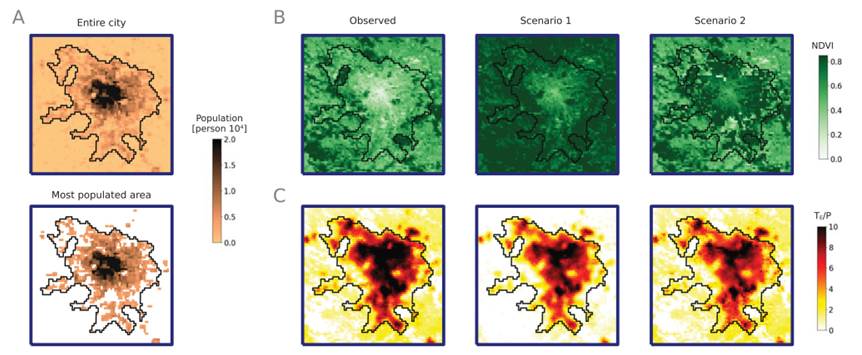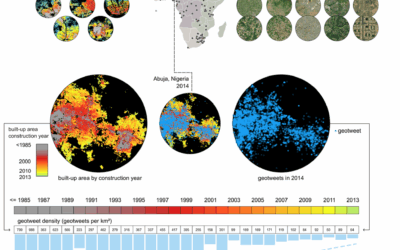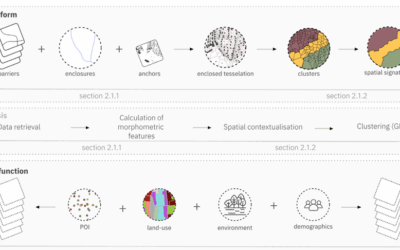New publication on urban greening for reduction of urban heat islands in nature communications
Researchers from the European Commission of the Joint Research Centre (JRC) in Ispra, Italy, the University of Turin in Italy, the ISI Foundation in Turin in Italy, the National Research Council of Italy, the Institute of BioEconomy (CNR-IBE) in Rome in Italy, the German Aerospace Center (DLR) in Munich in Germany, the Max Planck Institute for Biogeochemistry in Jena in Germany and our Earth Observation Research Hub at the University of Würzburg in Germany teamed up to evaluate potential intervention strategies to reduce population exposure to Land Surface Temperature (LST) extremes for cities across the globe. The paper titled “Spatially-optimized urban greening for reduction of population exposure to land surface temperature extremes” was just published in the journal nature communication by Emanuele Massaro, Rossano Schifanella, Matteo Piccardo, Luca Caporaso, Hannes Taubenböck, Alessandro Cescatti & Gregory Duveiller – the full article is available here: https://rdcu.be/dcFNu .
Abstract: The population experiencing high temperatures in cities is rising due to anthropogenic climate change, settlement expansion, and population growth. Yet, efficient tools to evaluate potential intervention strategies to reduce population exposure to Land Surface Temperature (LST) extremes are still lacking. Here, we implement a spatial regression model based on remote sensing data that is able to assess the population exposure to LST extremes in urban environments across 200 cities based on surface properties like vegetation cover and distance to water bodies. We define exposure as the number of days per year where LST exceeds a given threshold multiplied by the total urban population exposed, in person ⋅ day. Our findings reveal that urban vegetation plays a considerable role in decreasing the exposure of the urban population to LST extremes. We show that targeting high-exposure areas reduces vegetation needed for the same decrease in exposure compared to uniform treatment.
This work is also related to other works of the EO Research Hub – please see here: https://remote-sensing.org/new-publication-on-quantifying-urban-heat-exposure-at-fine-scale/ or https://remote-sensing.org/28388-2/








